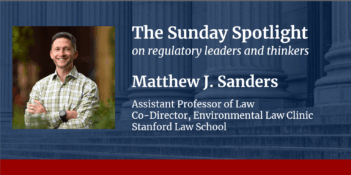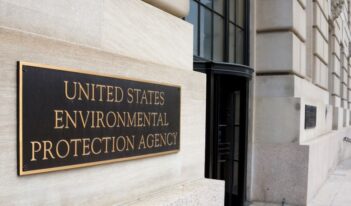
Regulatory news in review
- The Union of Concerned Scientists reported that the U.S. Nuclear Regulatory Commission (NRC) was willing to tolerate significant safety problems at domestic nuclear power plants. At the conference call releasing the report, a physicist from the group also criticized the NRC for establishing evacuation zones of only 40 miles around nuclear power plants, while urging Americans in Japan to stay 50 miles away from a nuclear plant damaged in the recent tsunami.
- Democratic leaders in the Senate delayed a vote on the proposal of Senator Jim Inhofe (R-OK) to block the Environmental Protection Agency from regulating greenhouse gases under the Clean Air Act. Senator Inhofe said that if his proposal fails, he will attempt to attach the proposal to each bill that comes before the Senate. See related The Regulatory Review essay.
- After the war in Libya raised oil prices, Democratic members of Congress urged President Obama to open the Strategic Petroleum Reserve, and Republican leaders criticized Obama for reducing domestic drilling permits. The risks and benefits of selling oil from the Strategic Petroleum Reserve are reportedly uncertain.
- The American Petroleum Institute endorsed the creation of the Center for Offshore Safety, an organization, financed by American off-shore drilling companies, that will attempt to strengthen the industry’s self-regulation of its management and safety practices.
- In an interview, Penn Law Professor and PPR Director Cary Coglianese highlighted Sunshine Week by discussing the importance and evolution of e-rulemaking, or the use of information technology by agencies to engage the public in their rulemaking processes. Professor Coglianese also noted the need to measure the impact of e-rulemaking on the “quality and legitimacy of federal agency rulemaking.” See related The Regulatory Review essay.
- George Mason University’s National Security Archive released a report finding that agencies’ response rates to Freedom of Information Act (FOIA) requests has improved since last year, though only 49 of the 90 agencies “took concrete steps to improve” their FOIA procedures. See related The Regulatory Review essay.
- The Tobacco Products Scientific Advisory Committee at the Food and Drug Administration (FDA) issued a report finding that menthol cigarettes were more dangerous than regular cigarettes. The FDA will now determine how to regulate menthol in cigarettes.
- Dane County, Wisconsin Judge Maryann Sumi placed a restraining order on a Wisconsin bill proposing to eliminate public-sector unions’ collective bargaining rights. The judge found that the legislature did not comply with proper procedures; if the legislature complies with those procedures, it still can enact the bill.
- After protests from business leaders, the Arizona Senate declined to pass five bills targeting undocumented immigrants. These bills would have required hospitals to report uninsured patients who could not prove their legal status, required schools to report undocumented students, forbid undocumented immigrants from driving in Arizona, and, in two bills, denied citizenship to native-born children of undocumented parents.



